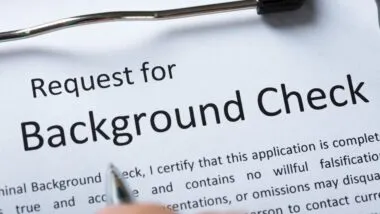
California two party consent is vital for businesses conducting call recording in the state, which are often used in reference for customer service training.
For call recording to be legal in the state, California two party consent must be given before any recording takes place. Companies can do this by warning consumers that their call may be recorded for customer service training purposes, which gives proper notice and gives consumers the choice in whether or not their calls is recorded.
According to the California Invasion Privacy Act (CIPA), all parties involved in a telephone call must give consent before the call can be recorded. This applies to all calls placed or received while in the state of California.
California two party consent typically applies to customer service calls placed to customers, in which businesses call offering better customer service or other related topics. However, the California two party consent rule also applies to customers placing calls to businesses, for technical support or other related questions.
In either scenario, it is the responsibility of the business to disclose the fact that their phone conversation may be recorded. This disclosure is typically made at the beginning of the call, or the customer service representative interacting with the customer.
Generally, a business can cover its bases by notifying the other party to the phone call that the phone call is being recorded. If the party stays on the line after that notification, they are deemed to have consented to the recording.
Overview of California Two Party Consent Importance
Even though California two party consent is required for businesses operating in the state of California, there have been a number of business allegedly failing to get consent to record the calls.
Baja Fresh may be one of the companies failing to disclose the fact that their calls may be recorded, which would violate the privacy of their customers. Baja Fresh first opened in 1990, offering Mexican food that was “FRESH” and different to customers.
Ever since the company opened its doors, it has become well known throughout the country and serves millions of customers. Like many other restaurants, customers can call in for pickup. Even though this is common practice, Baja Fresh may have not given notice to customers regarding possible call recording.
While this indication is yet to be confirmed, investigators are still opting to continue the inquiry. If Baja Fresh failed to adhere to the California two party consent rule, then fines at $5,000 per violation may quickly accumulate.
Consumers who call in to Baja Fresh or receive a call from the business may be entitled to seek compensation under state privacy laws if the company recorded those calls without the proper notice and consent.
Join a FREE California Call Recording Class Action Lawsuit Investigation
If you live in California and you did not receive a warning when calling a toll-free number, your call may have been recorded in violation of California law, and you may be entitled to compensation. See if you qualify to file a California call recording class action lawsuit.
ATTORNEY ADVERTISING
Top Class Actions is a Proud Member of the American Bar Association
LEGAL INFORMATION IS NOT LEGAL ADVICE
Top Class Actions Legal Statement
©2008 – 2026 Top Class Actions® LLC
Various Trademarks held by their respective owners
This website is not intended for viewing or usage by European Union citizens.














